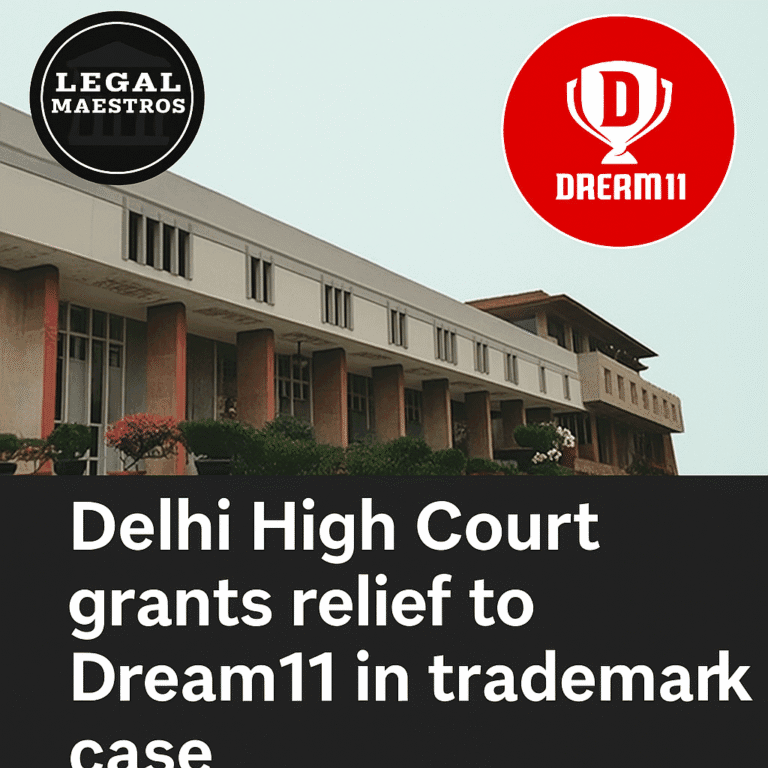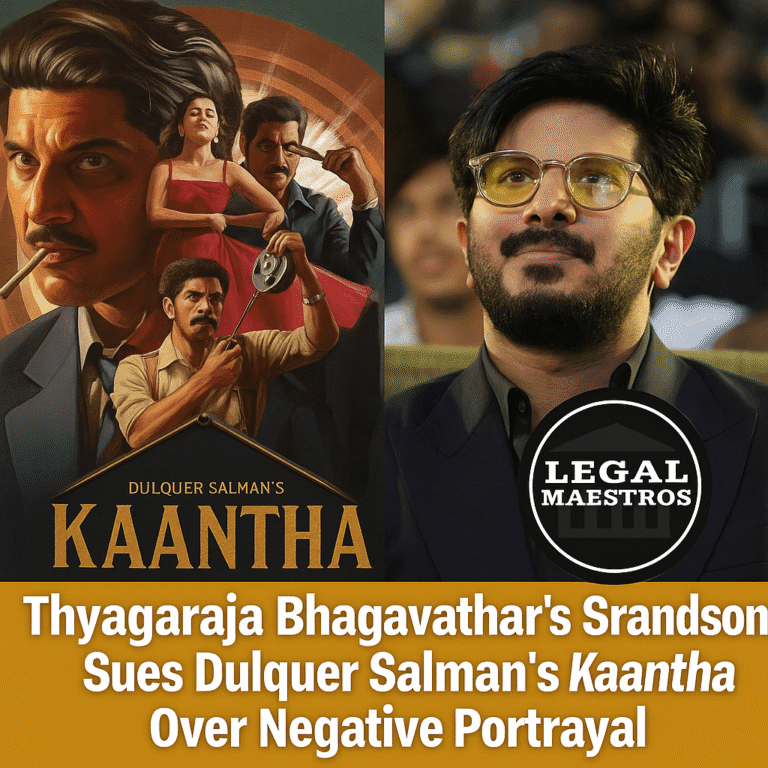
Delhi High Court is in the midst of a big legal controversy, whether the Central Government can actually exercise its powers in the current case of controversy on the film, Udaipur Files. This case is not restricted to a movie, it is a plunge into the depths of the government powers, freedom of speech and expression and a fair trial. It has given rise to a legal and constitutional debate as to the actions of the government that will set a wider implication on the filmmaker as well as to the citizen.
The History: The Movie and the Scandal
The Udaipur Files: Kanhaiya Lal Tailor Murder is a movie that is based on a gruesome incident of the murder of a tailor in Udaipur in the year 2022. The murder was very much publicized and the trial at the special court is undergoing. The film is based on the police chargesheet and the producers had planned its theatrical release, but it has had a bumpy ride to the big screen.
Some of the charged people in the murder case petitioned the High Court of Delhi that the release of the film would work against the right to a fair trial given to them. They argued that the video, termed as hate speech, because it is based on the current court case, may even sway witnesses, the ordinary people and even the court as such is a threat to a fair trial.
For any queries or to publish an article or post or advertisement on our platform, do call at +91 6377460764 or email us at contact@legalmaestros.com.
The original order of the Delhi High Court was to put a stay on the release of the film and the petitioners were to move to the Central Government to have the film certified re-examined. The Central Government re-ordered the film in its main statutory powers under the Cinematograph Act, 1952, clearing the film with a modified disclaimer and six cuts, in any case.
This is the legal battle of which the fight has actually commenced
The Central Government: Power of The Heart of The Matter
The crux of the present investigation by the Delhi High Court is the power granted by the law to the Central Government to obtain reductions in a film even once the concerned movie has been sanctioned by the Central Board of Film Certification (CBFC). This basic question, which the court has posed to the government lawyers on several occasions is, “Does the statute grant you the authority to be able to do it?”
For any queries or to publish an article or post or advertisement on our platform, do call at +91 6377460764 or email us at contact@legalmaestros.com.
This is the question which makes its way to the root of the Cinematograph Act, 1952. According to the Act, the CBFC becomes the leading organization in certifying films. But it has also such a provision, Section 6, which grants the Central Government revisional powers.
Earlier there was a provision under the Act that was giving the Central Government a very broad discretion to substitute decisions given by the CBFC. This was however, scrapped by the Supreme Court in a landmark ruling in 2001 which declared this part of the law unconstitutional as an infringement of the constitutional right to freedom of speech and expression. The court was of the view that the government was not allowed to take the position of a kind of appellate body and replace the view of the expert body (CBFC).
After this the powers of the government under the Section 6 were restricted. Delhi High Court is now looking into the matter of whether government by issuing six cuts has yet again exceeded its mandate and become an appellate authority as the Supreme Court had already refused to permit. The court has warned the government that its powers have to be used within the four corners of the statute but not in general administrative power.
For any queries or to publish an article or post or advertisement on our platform, do call at +91 6377460764 or email us at contact@legalmaestros.com.
The lawyers of the government have fought that they are not breaking any law and the revisional powers are still broad enough to suggest that changes. They have also given a sentence that, even the CBFC had already made 55 cuts in the movie and the cuts delivered by the Central Government, came after another sign off by experts.
Conflict of Constitutional Rights
This is the typical case of a clash of two crucial rights in the constitution:
- Freedom of Speech and Expression (Article 19(1)(a)): The film producers have the freedom to make and publish their movie. They feel that they are narrating a story according to available public records (the chargesheet) and have no right to do otherwise, after going through the certification procedure. The act of the government may be regarded as a violation of this freedom.
- Right to a Fair Trial (Article 21): Petitioners are the accused people in the present case and they have a fundamental right to a fair trial. They also state that with the film making sensational the case and presenting them in a particular manner, getting them a fair trial may not be possible at all. They are of the opinion that, the film may contaminate the psyche of the citizens and prospective witnesses thereby infringing their right to a fair trial.
The court has had to seriously juggle these two rights. Although the court has indicated that judges cannot be easily influenced by movies, the court must take into consideration the possible impact that will be experienced by the witnesses and the entire scenery of the trial. The court has not given free speech absolute property in India and it may be curtailed on grounds such as good order, decency and cheap justice in the interest of justice.
For any queries or to publish an article or post or advertisement on our platform, do call at +91 6377460764 or email us at contact@legalmaestros.com.
What Am I Going to Do?
When the Delhi High Court asked probing questions, the Central Government has been put on a back foot. According to the reports, the government has revoked the order of the cuts and has taken the responsibility to make another ruling on the certification of the movie. The court would still listen to the case to give the exact meaning of the Cinematograph Act and the capacity of the Central Government in terms of revisional powers.
The decision of this case will have a fatal precedent. It will also set the limits of government regulation in the issuance of film certification and expound the relation between the Cinematograph Act, the freedom of speech and the right to fair hearing. It is expected that this litigation case played out at the Delhi High Court will have had an influence on the way such controversies are now dealt with in future hence so that the strength of the state is used in not only reasonable but also in a manner which does not overstep the law.


![JOB POST: Junior Associate at ASM Law Chambers, Jaipur [Freshers]](https://legalmaestros.com/wp-content/uploads/2025/11/Gemini_Generated_Image_8wrxer8wrxer8wrx-768x708.png)

